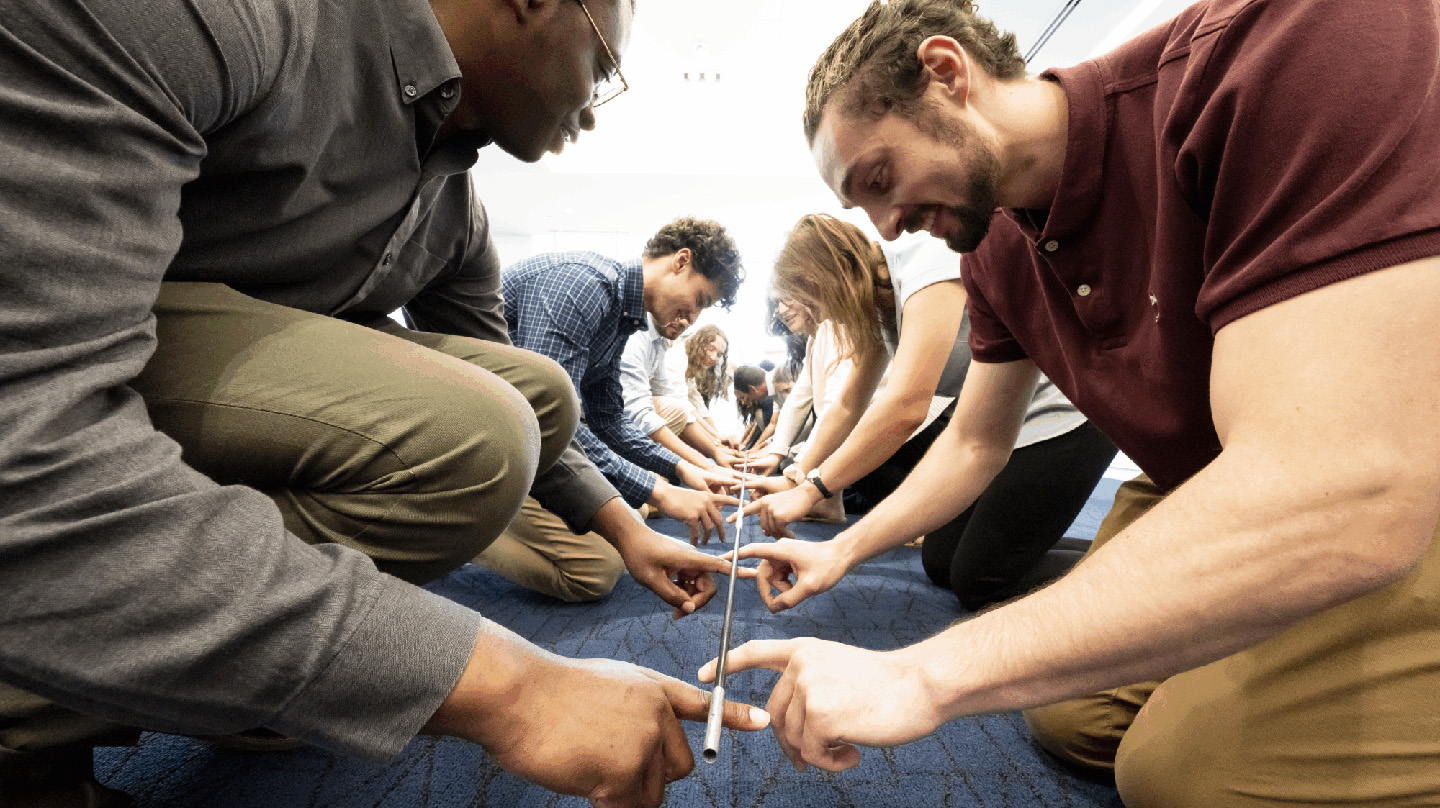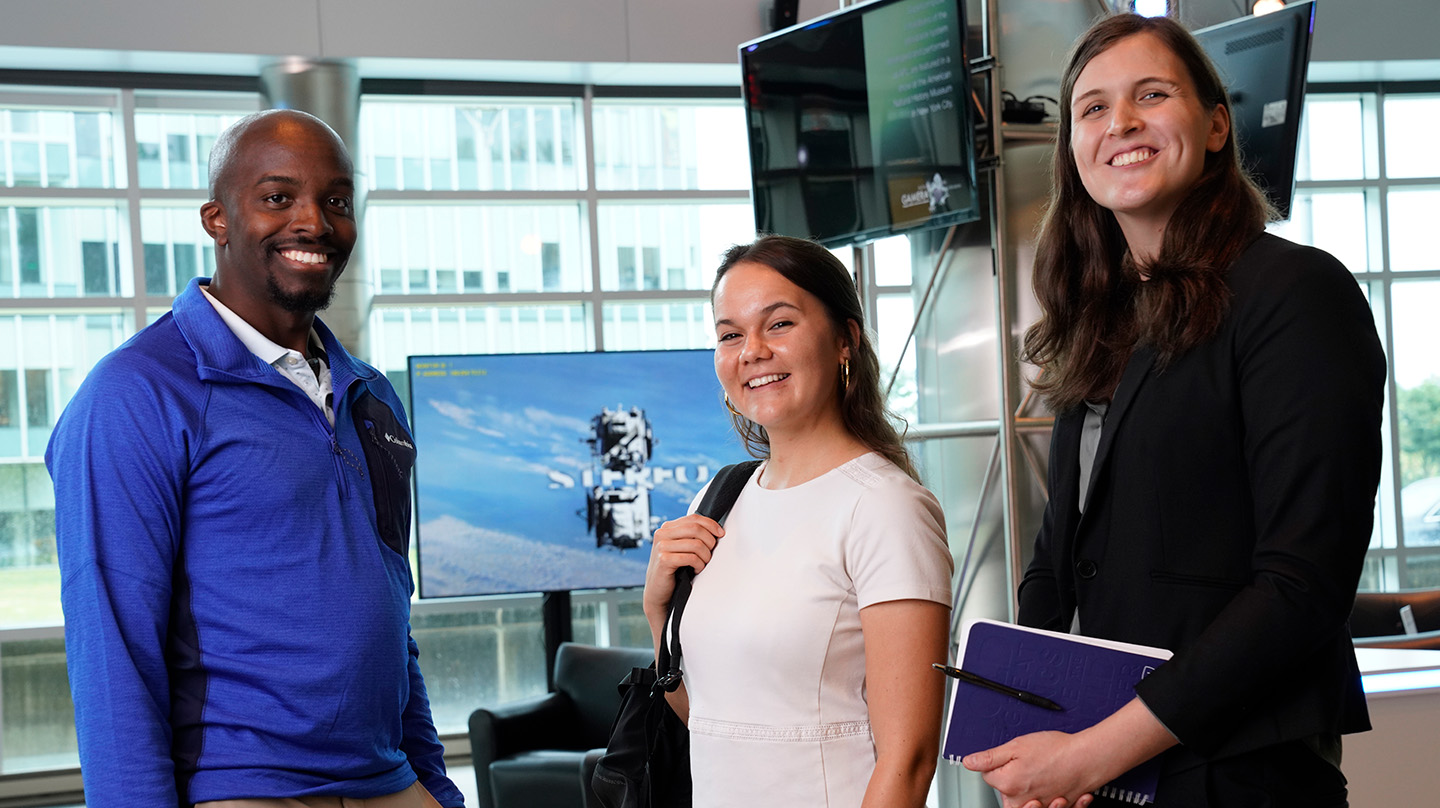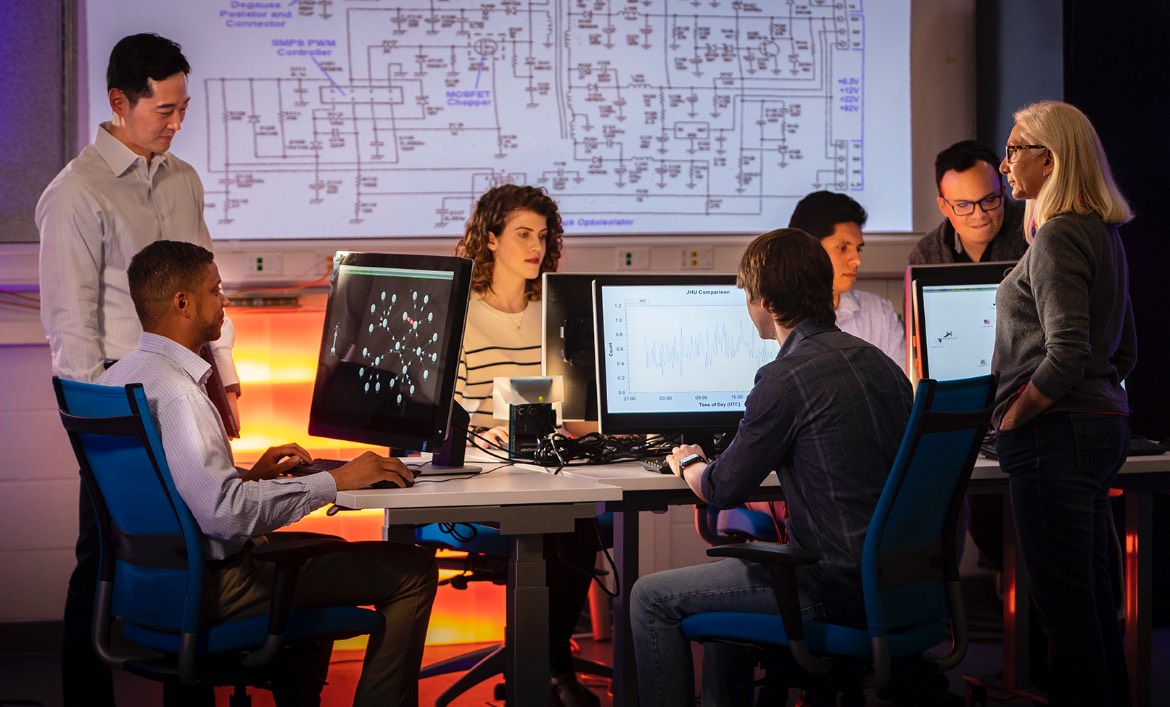News
Johns Hopkins APL’s Discovery Program Approaches 10 Years of Impact and Innovation
In the early days of her tenure at the Johns Hopkins Applied Physics Laboratory (APL) in Laurel, Maryland, Nikki Steiner became an integral contributor to experimental tests and code development aimed at understanding and updating standards for armor fielded by a sponsor. As the project progressed, she embraced the rotational nature of APL’s Discovery Program — a two-year program that exposes recent college graduates to multiple technical organizations at the Laboratory — and moved on to new challenges.
While Steiner immersed herself in diverse experiences in different APL sectors and departments, the armor standards project continued to flourish. It wasn’t until she returned to the group at the end of the program that the magnitude of her initial contributions became apparent. She took on additional responsibility, playing a crucial part in quantifying the results of the experiments for eventual delivery to the sponsor.
The culmination of her team’s efforts was impactful: The results persuaded the sponsor to update armor requirements for its organization, setting a precedent for future advancements. Steiner’s experience illustrates the Discovery Program’s capacity to inspire early-career professionals to contribute meaningfully to critical projects.
“The Discovery Program was the foundation for both building my professional network and developing the skills I have used to continue expanding my network in the years after,” said Steiner, who participated in the 2017 program cohort and is now a signal processing engineer in APL’s Research and Exploratory Development Department. “I couldn’t count the number of times I have reached back out to APLers from across my rotations to ask for their expertise to help me with a proposal or a technical challenge, or even for career development advice.”
As the program prepares to welcome its 10th cohort of new professionals, its leaders are taking stock of its transformative nature and preparing to usher in a significant change to its rotational structure.
Nurturing Talent, Fostering Success
The Discovery Program has its origins in the Lab’s Associate Technical Staff Program, which ran from 1959 to the early 1990s and introduced new scientists and engineers to APL’s culture and work. It featured a project, provided an overview of APL’s various mission areas via technical courses, and then placed participants within a technical group. Today, APL offers several staff development opportunities, including the APL Staff Orientation Program, the Strategic Education Program and the Building Leaders, Accelerating Science and Technology (BLAST) innovation initiative.
The Discovery Program was introduced to help new college graduates build on their academic skills and grow in one or more technical skills. Each assignment lasted six months and allowed the new hires to get a feel for the variety of work done in different areas, and to challenge themselves by stepping out of their comfort zones. After two years, the program leadership team drew on coaching sessions and feedback from staff and host groups to determine a final placement.
The program’s first cohort joined in 2015 and included 16 graduates from 13 schools, along with about 40 groups across APL initially committed to hosting them. Over the last decade, the program has nurtured 160 staff from 82 schools, collaborating with a staggering 120 groups for more than 570 rotations.
“One of the program’s remarkable achievements is the extensive integration across APL’s technical landscape,” said Patrick Cox, the Discovery Program Group supervisor, adding that approximately 80% of the technical groups within APL’s six technical sectors and departments have hosted Discovery Program staff. “It has truly showcased the ability of these talented young staff members to permeate and contribute to diverse scientific and engineering domains.”
Another impressive feat, Cox said, is the placement of more than 100 alumni into 63 different groups upon completing the program. Eligibility was expanded to doctoral students in 2019, which further broadened the program’s scope and affirmed its commitment to fostering a diverse pool of new staff, he said.
Beyond the numbers, the program has yielded a tapestry of success stories and anecdotes from its alumni. Their narratives illuminate how the program has been a catalyst, connected individuals and cross-pollinated best practices, all paving the way for impactful contributions within APL.
In Rachel Bonek’s first rotation, with the Sensor Systems Engineering Group in APL’s Air and Missile Defense Sector, the electrical engineer had the opportunity to support data analysis of Missile Defense Agency test flights.
“I’ve built on that experience while working on data analysis in other mission areas throughout the Lab,” said Bonek, a member of the 2019 cohort who now works in APL’s Asymmetric Operations Sector. “The Discovery Program provided me with an instant network around APL, which has helped me find opportunities, mentors and technical experts in a wide range of areas.”
Cohort 2020 member Malaika Wanjihia was still working on her undergraduate degree when she learned about the Laboratory through an APL-Morgan State University mentoring program. COVID had stalled that program, but Wanjihia was able to draw on the extensive contacts she made while participating in the Discovery Program to reestablish the mentoring partnership last fall.
“In the Discovery Program, I had the opportunity to interact with people across different disciplines and backgrounds, which has helped me gain deeper insight into the work at the Lab and how it’s essential to collaborate with people in different technical fields to come up with great solutions to problems,” said Wanjihia, who is now an electrical engineer in the Asymmetric Operations Sector.
The Discovery Program has established an Alumni Steering Committee, comprising more than 100 alumni strategically placed throughout the Laboratory to amplify their influence and impact. A new component of the committee is the Discovery Program Supervisors Consortium. Led by Jobin Kokkat, the consortium addresses the specific needs of alumni who have transitioned into line supervisor roles, showcasing the program’s adaptability in supporting career progression.
“The alumni committee and the supervisors consortium foster a continuous development environment, supporting alumni to contribute meaningfully to their roles and be well equipped for leadership within the organization,” said Kokkat, a member of the 2016 cohort and a section supervisor and project manager in APL’s Force Projection Sector. “It serves as evidence that the Discovery Program not only readies staff members for immediate contributions but also cultivates leaders capable of shaping the direction and success of the Laboratory.”


